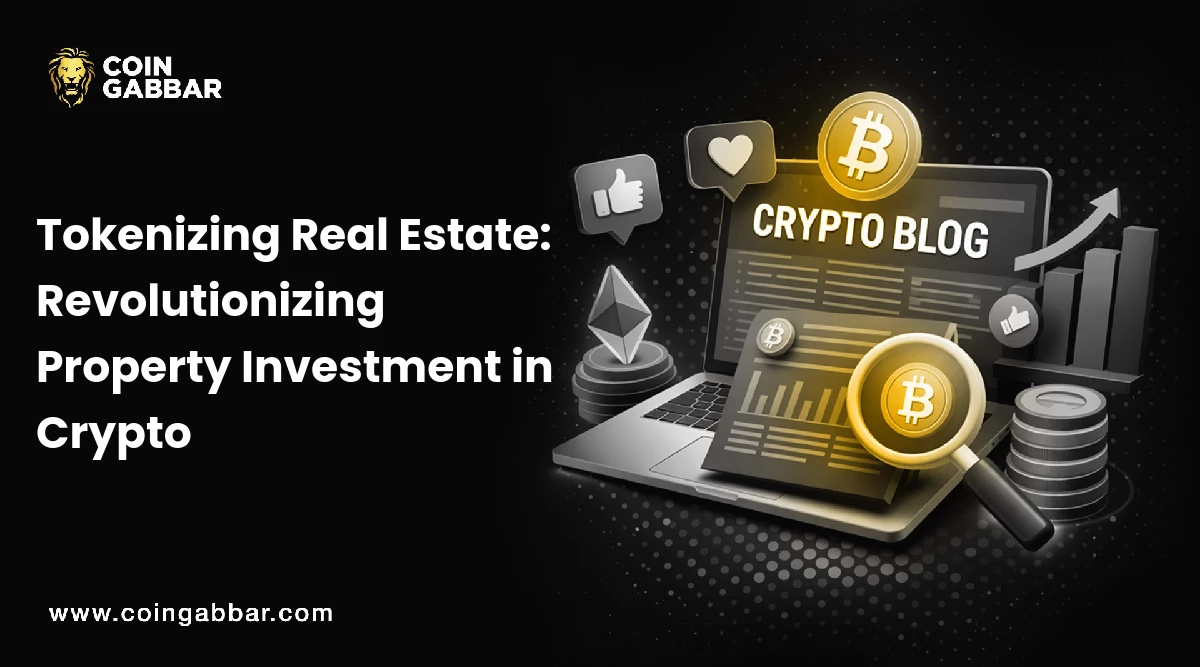
Have you ever daydreamed about owning real estate, envisioning steady rental income and property values that climb year after year, only to feel thwarted by the massive down payment? For many people, especially in markets where prices are skyrocketing, saving up that initial 20% can seem like an impossible hurdle. This challenge can be even more daunting in emerging economies, where decades of disciplined saving may be needed just to buy a modest property.
But what if there were a way to own a fraction of a building instead of the entire thing? Imagine taking part in a prime real estate deal without spending years trying to accumulate the full down payment. This is the big promise behind real estate tokenization: converting physical properties into digital “shares,” or tokens, that make ownership accessible to anyone with an internet connection and some funds to invest.
In essence, real-world asset (RWA) tokenization breaks down a building, whether it’s an apartment complex or a bustling hotel, into multiple slices. Each slice, represented by a digital token on the blockchain, grants the holder genuine ownership rights. Instead of tying up all your money in a single property, you can buy and sell smaller shares as your financial situation changes. It’s a refreshing alternative for people who’ve felt priced out of real estate and are tired of the illiquidity that comes with traditional property deals.
At a recent Roundtable hosted by entrepreneur, Mario Nawfal, representatives from MultiBank discussed their groundbreaking approach to tokenizing real estate, drawing over 150,000 live listeners eager to understand the future of real-world asset (RWA) investments. Srinu Chauhan, CMO at Multibank.io, highlighted the platform’s regulatory expertise, supported by 17 different licenses globally, and explained how fractional ownership could democratize property investments, especially in emerging markets. This event showcased how large-scale, established institutions are seriously tackling the complexities and opportunities of real estate tokenization, shedding light on how blockchain-based solutions are moving beyond theory and into tangible, revenue-generating ventures.
Tokenization isn’t just about slicing properties into smaller pieces; it also involves smart contracts that automate much of the grunt work. Dividends from rental income can be distributed seamlessly to token holders, and property management can be more transparent, thanks to the blockchain’s audit-friendly structure. One helpful tip for anyone interested: always verify that the platform you’re using has done its due diligence, both legally and financially, before tokenizing any property. Traditional real estate rules still apply; only now, they’re enforced via technology.
While many companies have jumped into this space, one approach worth noting is from Multibank Group, a global trading platform that has begun exploring tokenized properties. Their emphasis on robust regulatory standards and clear legal frameworks shows how larger financial institutions are taking tokenization seriously. According to Srinu Chauhan, who has observed multiple market cycles, the most exciting part isn’t another wave of speculation; it’s real estate’s potential to unlock practical, income-generating investments.
Whether it’s a high-performing hotel in a popular tourist destination or a commercial complex in a thriving city, these assets can now be fractionally owned by a global pool of investors. If the property is already generating rent or revenue, token holders receive a share of it as a dividend. For many, this arrangement addresses the twin goals of seeking both stable returns and tangible assets.
Perhaps the most striking outcome of tokenization is how it levels the playing field. People from various economic backgrounds can now invest without needing to commit an entire life’s savings to one property. This broader participation can ultimately drive more liquidity in the real estate market, potentially bringing down transaction costs and speeding up the buy-and-sell process.
Still, if you’re just getting started, consider dipping your toes in gradually. Look for platforms that are transparent about the properties they list, who manages those buildings, and how income is distributed. While it’s easy to get excited by the cutting-edge tech, the underlying value still depends on the quality of the real estate itself.

Sanket Sharma is an experienced crypto writer with five years of expertise in blockchain technology and digital assets. He specializes in translating complex concepts into clear, accessible insights, catering to both novice and seasoned investors.With a keen focus on Bitcoin, altcoins, NFTs, and DeFi, Sanket provides in-depth analysis of market trends, price movements, and emerging developments. His work is rooted in thorough research and a deep understanding of the evolving crypto landscape.Passionate about blockchain’s transformative potential, he is committed to delivering well-researched, informative content that empowers readers to navigate the fast-paced world of cryptocurrency with confidence. Through his writing, Sanket continues to educate and engage audiences, helping them stay ahead in the digital asset space.